As we approach the end of an era with Skype’s impending closure in May 2025, many users are left pondering their next steps for video calls, messaging, and online meetings. While Microsoft is nudging users towards Teams, it’s not the only option. The landscape of communication tools has expanded significantly, offering many alternatives that cater to various needs. Whether you’re looking for casual chats with friends or robust solutions for business meetings, there’s something for everyone. Let’s dive into the best Skype alternatives available today.
Why is Skype Being Shut Down?
Skype has been an essential part of internet communication for years, but Microsoft has decided to eliminate it in favour of Teams. This shift aims to streamline Microsoft’s offerings and focus on a single collaboration platform. However, this transition leaves many users in the lurch, especially those who relied on Skype for its user-friendly interface and affordable international calling options.
What Will Users Miss?
- Affordable International Calls: Skype has long been known for its competitive rates on international calls, a feature many users will miss.
- Simplicity: Unlike Teams, which is tailored for business use, Skype was designed for casual conversations, making it more accessible for everyday users.
- Offline Calling: Skype allowed users to make calls even without an internet connection, a feature that Teams lacks.
- Flexible Payment Options: Skype offered various payment methods, including pay-as-you-go and subscription plans, which Teams does not support.
With Skype’s closure on the horizon, exploring alternatives that can fill the void is crucial. Many Skype alternatives now integrate AI-powered tools and features, such as automated captions and smart noise cancellation, improving the overall communication experience
Top Skype Alternatives for 2025
1. Zoom
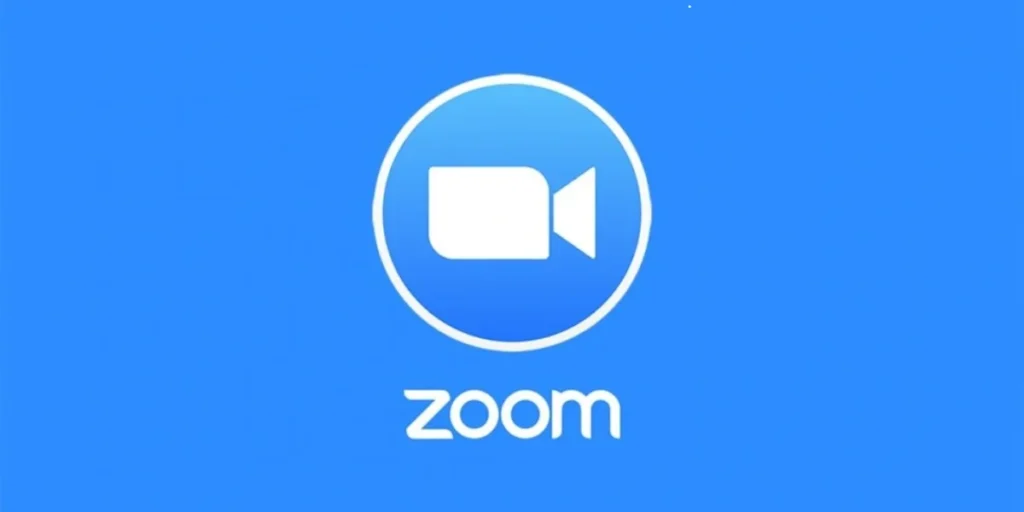
Best for Video Conferencing
Zoom skyrocketed to fame during the pandemic, becoming synonymous with video meetings. It’s an excellent choice for both personal and professional use.
- Features: High-quality video and audio, screen sharing, breakout rooms, and a virtual whiteboard.
- Free Plan: Allows meetings of up to 100 participants for 40 minutes.
- Paid Plans: Offer extended meeting durations and additional features.
Pros:
- User-friendly interface.
- Reliable performance with minimal lag.
Cons:
- Security settings need to be manually adjusted for optimal privacy.
2. Microsoft Teams
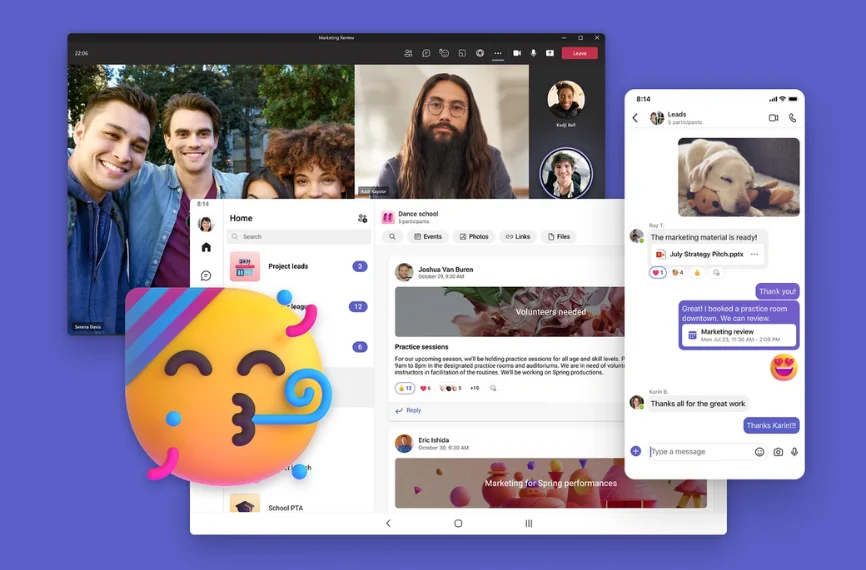
Best for Microsoft 365 Users
While Teams is Microsoft’s recommended replacement for Skype, it’s more suited for business environments.
- Features: Integrated with Microsoft 365, allowing for document sharing and collaboration.
- Free Plan: Supports 60-minute meetings for up to 100 attendees.
Pros:
- Excellent for team collaboration.
- Seamless integration with other Microsoft products.
Cons:
- Not ideal for casual users; the interface can be overwhelming.
3. Google Meet
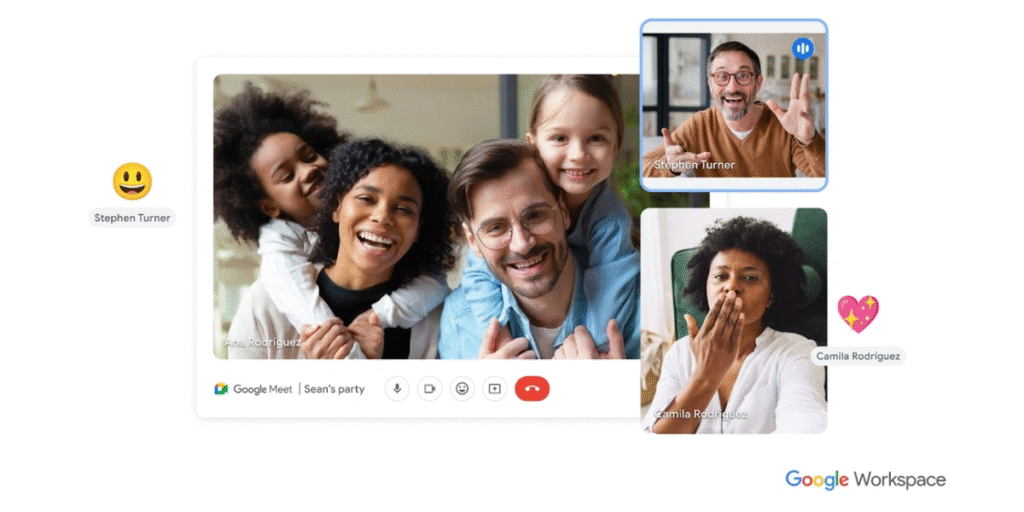
Best for Google Users
Google Meet is a straightforward video conferencing tool that integrates well with Google services.
- Features: Easy to join meetings via a link, screen sharing, and real-time captions.
- Free Plan: Allows meetings with 100 participants for 60 minutes.
Pros:
- Intuitive and straightforward interface.
- No software download is necessary; it works directly in the browser.
Cons:
- Limited features compared to other platforms.
4. WhatsApp

Best for Casual Chats
WhatsApp is primarily a messaging app that offers voice and video calling features.
- Features: End-to-end encryption, group chats, and document sharing.
- Free to Use: Only a mobile number is required to sign up.
Pros:
- Highly popular and widely used.
- Secure messaging with encryption.
5. Yolla

Best for International Calling
Yolla is a fantastic alternative for those who need to make international calls without relying on the internet.
- Features: Allows calls to landlines and mobiles globally, even if the recipient doesn’t have the app.
- Free Calls: Between Yolla users, plus low-cost rates for non-users.
Pros:
- No need for both parties to be online.
- Flexible payment options.
Cons:
- Limited features compared to full-fledged video conferencing tools.
6. Viber
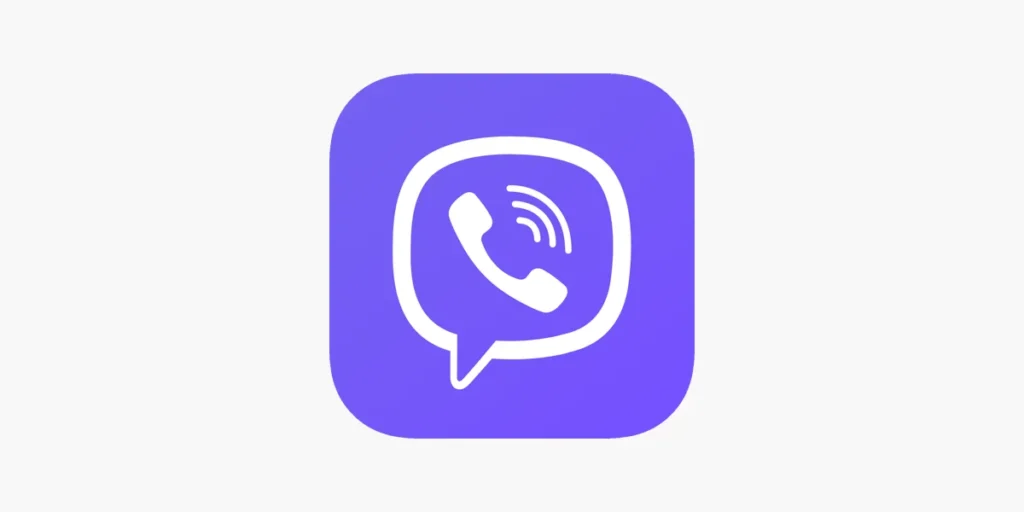
Best for Privacy
Viber offers secure messaging and calling options, making it a solid choice for privacy-conscious users.
- Features: Voice and video calls, group chats, and Viber Out for international calls.
- Free to Use: A phone number is required for registration.
Pros:
- End-to-end encryption for all communications.
- User-friendly interface.
Cons:
- Some features require payment for international calls.
7. Signal

Best for Secure Communication
Signal is renowned for its privacy and security, making it a top choice for sensitive conversations.
- Features: Encrypted voice and video calls, secure messaging.
- Free to Use: A phone number is required for registration.
Pros:
- Strong privacy features with no data collection.
- Open-source platform.
8. Telegram

Best for Group Chats
Telegram is a messaging app that supports voice and video calls, focusing on group communication.
- Features: Large group chats, channels, and file sharing.
- Free to Use: A phone number is required for registration.
Pros:
- Highly customisable with bots and channels.
- Strong security features.
Cons:
- Video calling features are not as robust as dedicated platforms.
9. WebEx
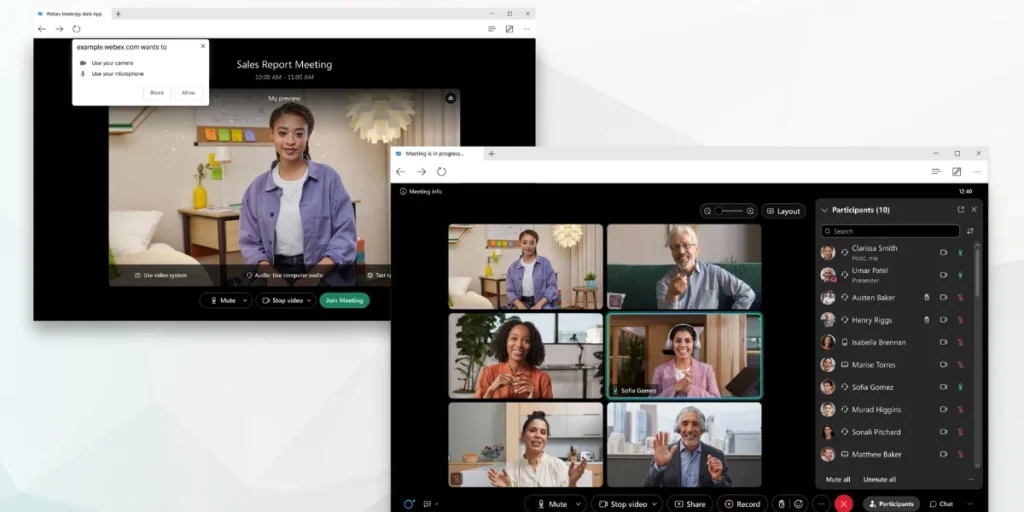
Best for Business Use
WebEx is a comprehensive video conferencing tool designed for professional environments.
- Features: Screen sharing, meeting recording, and integration with other business tools.
- Free Plan: Allows meetings with 100 participants for 50 minutes.
Pros:
- Excellent for training and webinars.
- Robust features for business collaboration.
Cons:
- It can be complex for casual users.
10. Jami
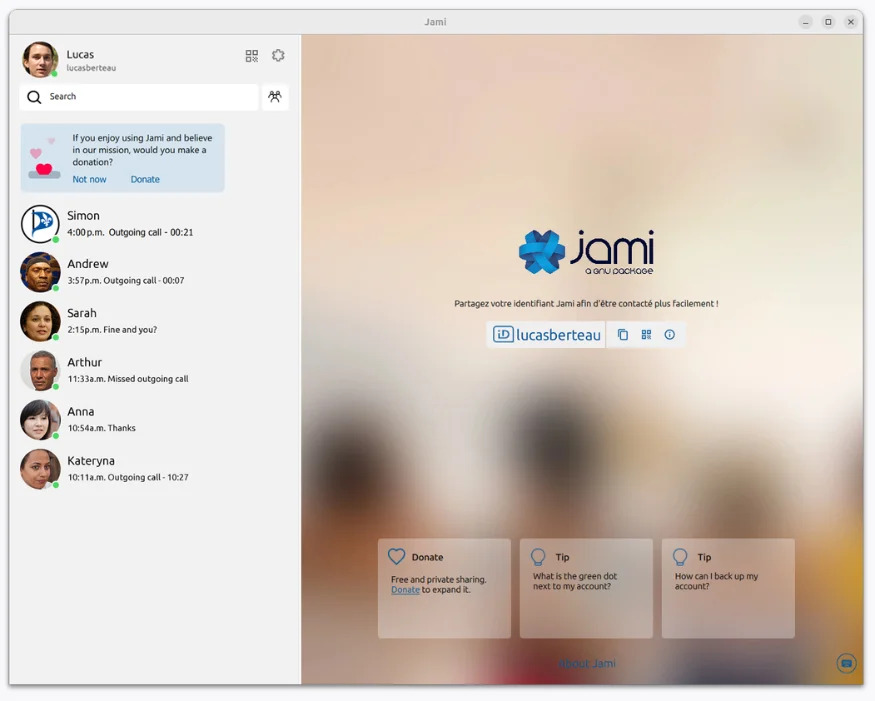
Best Open Source Alternative
Jami is a decentralised communication platform that prioritises user privacy.
- Features: HD video calling, instant messaging, and file sharing.
- Free to Use: Completely open-source.
Pros:
- No central servers; calls are direct between users.
- Strong focus on privacy.
Cons:
- Limited user base compared to mainstream apps.
What to Consider When Choosing a Skype Alternative
When selecting a replacement for Skype, consider the following factors:
1. Device Compatibility
Ensure the alternative works across various devices, including Windows, Mac, ios, and Android. This flexibility is crucial for seamless communication.
2. Cost Structure
Evaluate whether you need a complimentary service or are willing to pay for premium features. Some platforms offer free calls between users but charge for international calls.
3. User Experience
Look for an interface that is easy to navigate. A complicated setup can deter users from fully utilising the platform.
4. Security Features
If privacy is an issue, look for platforms with end-to-end encryption and strong security features.
5. Call Quality
High-quality audio and video are required for successful communication, particularly during business meetings.
Conclusion – Skype Alternative
With Skype’s retirement on the horizon, now is the time to explore alternatives that suit your communication needs. Plenty of options are available if you require a simple messaging app or a comprehensive video conferencing tool. From Zoom and Microsoft Teams for business use to Yolla for international calls, the right tool awaits you. Don’t wait until the last minute—start exploring your options today and find the perfect Skype alternative for your needs!
What will replace Skype after its retirement in 2025?
Microsoft Teams will be the primary replacement for Skype. The free version of Teams will include core features similar to Skype, such as one-on-one and group calls, messaging, and file sharing. Existing Skype users can use their credentials to sign into Teams, and their chats, contacts, and other data are automatically transferred.
Which alternative offers the best video conferencing tool for businesses?
Zoom has emerged as a popular Skype alternative, particularly for businesses. It offers flexible options for both audio and video calls, supports one-on-one and group communications, and works across multiple platforms. Its user-friendly interface and robust features suit professional video conferencing needs well.
Are there any free alternatives that prioritise privacy and security?
Yes, Signal stands out as a free, security-focused alternative to Skype. It offers end-to-end encryption for messages, voice calls, and video conferences. Signal’s code can be independently audited as an open-source platform, ensuring transparency and trust in its privacy claims.
Which alternative integrates best with other productivity tools?
Microsoft Teams provides seamless integration with Microsoft 365 applications, making it a great choice for users already invested in the Microsoft ecosystem. It offers a centralised workspace for team management, file sharing, and collaboration, alongside its communication features.
Is there a simple, no-registration alternative for quick video calls?
Talky offers a straightforward, browser-based solution for video calls without requiring account creation. Users can create unique room URLS instantly, making it ideal for casual conversations or small team discussions. It supports up to six participants and includes features like screen sharing and optional room password protection.






